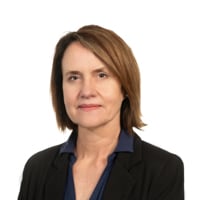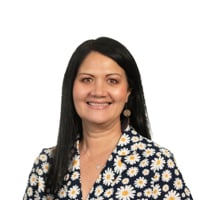|
|||||||||||||||

Prof Machdel MattheePosition: Professor NRF rating: C2 Office: IT Building 5- 58 E-mail: [email protected] ORCID: 0000-0002-6973-1798 My research generally focuses on 21st century skills (skills needed to function in a technology-dominated society) and the development thereof. The aim is to provide quality education and promote social well-being:
• The development of 21st century skills in different communities: AI literacy, computational thinking, critical thinking, problem solving, communication, collaboration
• Understanding the influence of genAI on 21st century skills
• Understanding the need of 21st century skills to function in the age of AI
• Understanding the use of genAI in education.
• The use of technology in education
• Societal implications of IS (and also AI): e.g. the changing nature of human agency, fake news.
• Cybersecurity behaviour
The research domains that I investigate include schools, higher education institutions, organisations, communities and end-users.
Topics that I am actively involved in are listed below. I can support students who are committed to researching problems in one of the following:
• GenAI and critical thinking
• GenAI and personalised learning
• Development of 21st century skills in the workplace
• Fake news and critical thinking;
• Detection of fake news;
• Human-AI collaboration and communication
• Cybersecurity behaviour
Keywords and concepts relevant to my research: Critical thinking, AI literacy, Change, Societal Implications, ICT and education, Disruption, Social media, Future, 21st century skills, Society 5.0, well-being.
|
|||||||||||||||

Dr Lizette WeilbachPosition: Senior lecturer Office: IT Building 5-69 E-mail: [email protected] ORCID: 0000-0002-0827-2444
The research domains that I focus on include IS and organisations, Society 5.0, disruptive technologies and UX (User Experience) Design. I am particularly interested in the way in which information technology affects the social and emotional well-being of people. This includes, but is not limited to:
IS development and design is another passion. I have presented multiple business & systems analysis and design courses to industry. My latest interest in this field focuses on UX design and I’m interested in pursuing research which focusses on evaluating and enhancing the human computer interaction aspects of IS. I’ve been teaching in the field of IS for many years, and thus also have an interest in ICT to support quality education. Here my focus is on ICT to enhance teaching and learning: the use of current tools, techniques, and approaches available for both face-to-face and online teaching and learning. I can support students wanting to do research on all the topics mentioned above. Keywords: Society 5.0; AI use and consequences; disruptive technologies; UX Design; Social Media use; cyberbullying; technology to enhance teaching and learning.
|
|||||||||||||||

Dr Riana SteynPosition: Senior Lecturer NRF rating: Y2 Office: IT Building 5-66 E-mail: [email protected] ORCID: 0000-0002-9841-2497
My research generally focuses on Entrepreneurs from an educational perspective. I focus my research on Entrepreneurial skills development and how this can be achieved through various avenues, thus focusing my research on:
|
|||||||||||||||
|
|||||||||||||||
Copyright © University of Pretoria 2025. All rights reserved.
Get Social With Us
Download the UP Mobile App